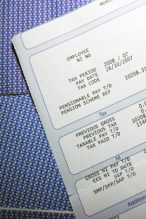Housing association board members: payment, taxation and employment rights
- Details
 It is frequently asked whether board members of housing associations should be paid, what to pay them, and how to pay them. Imogen Reseigh explores some of these issues and also discusses taxation and employment status.
It is frequently asked whether board members of housing associations should be paid, what to pay them, and how to pay them. Imogen Reseigh explores some of these issues and also discusses taxation and employment status.
Do board members have employment rights?
This will depend on whether they are paid or not. If they are then they will almost certainly be protected from discrimination under the Equality Act 2010 and from detriment for whistleblowing. They will also be entitled to be paid the National Living Wage (NLW). Paid board members will also be entitled to paid annual leave under the Working Time Regulations. This is because under current legal definitions (which we explore below) they are usually treated as workers.
Currently unpaid board members do not enjoy any employment rights although there is a suggestion that volunteers should have some employment rights in future. It remains to be seen whether this will be the case.
Taxation of payments to board members
Once a decision has been made to pay, it is important to note that all board remuneration is generally taxable as employment income and liable to employee's and employer's NIC. A board member is an office holder for employment tax purposes and so is effectively taxed as an employee in respect of the duties he or she performs as a board member.
Some portfolio board members operate via service companies and often request their board remuneration payments to be made to their company. Rather than making a payment to an individual, the organisation may pay a fee directly to the service company for the services provided, with the payment made gross on the basis that the service company is not itself an employee (and legally cannot be an employee).
It is highly likely, however, that a board member being paid through a service company will be subject to the same tax liability as one who is not, thus defeating the object of being paid in this way, and also increasing the tax non-compliance risks for the employer organisation. First there is the issue of the need for a personal contract as a board member to consider, and in addition there is the Supreme Court's decision last year in Pimlico Plumbers Ltd and Mullins v Smith to take into account.
Personal contracts
The NHF Code of Governance states that it is good practice for a board member to have a personal contract and that this contract should set out the requirements of the role.
Meanwhile, the UK Corporate Governance Code states that the responsibilities of the board should be clear, set out in writing and made publicly available. Remuneration is linked explicitly to the time commitment and responsibilities of the role. The Corporate Code is supplemented by the FRC Guidance on Board effectiveness which makes reference to letters of appointment for non-executive directors and states that these letters should set out the expected time commitment.
Generally then, board members will be expected to have personal contracts clearly setting out their responsibilities. In other words, they will be expected to provide personal service. This means that any service company set up by the board member will not just be providing services in the way that any consultancy would, but the services of a specific individual, namely the board member.
The need for board members to have personal contracts means that it will be difficult for them to avoid the payment of tax (and even more so for the employer organisation to avoid having to deduct PAYE income tax and NICs at source), and this is reinforced by the Supreme Court's decision in Pimlico Plumbers.
Implications of the obligation to provide personal service
If board members provide personal service then it will be difficult to argue that any payment that they receive can be paid without the deduction of tax. This is particularly so in the light of the Supreme Court's decision in Pimlico Plumbers.
In Pimlico Plumbers the Court held that Mr Smith, a purportedly self-employed plumber, was in fact a "worker" with limited employment rights. This was because he worked under a contract whereby he undertook to do, or perform personally, work or services for Pimlico Plumbers. The Supreme Court upheld the tribunal's initial decision that the dominant feature of Mr Smith's contract was an obligation of personal performance. It found that the terms of the contract were clearly directed at performance by Mr Smith personally and, although there was a limited right to substitute (i.e. sub-contract someone to do his job), the Court found it to be so insignificant as not to be worthy of recognition in the written terms.
The dominant purpose of a board member's agreement will be an obligation of personal performance, particularly if roles, duties, time commitments and remuneration are mentioned.
Review your payment mechanisms
It is worth explaining to those board members who are currently paid via their service companies, or who want to set up this arrangement, that there is unlikely to be any tax advantage. Housing associations should consider how they should be paying their board members and what obligations they owe to HMRC.
Another issue to bear in mind when carrying out a review is the taxation of expenses for board members. As more board members carry out work from home, and even attend board meetings remotely, this gives rise to queries about the payment of travel and related expenses and ensuring tax compliance for the organisation.
Imogen Reseigh is a Senior Associate at Trowers & Hamlins. She can be contacted on 020 7423 8742 or










